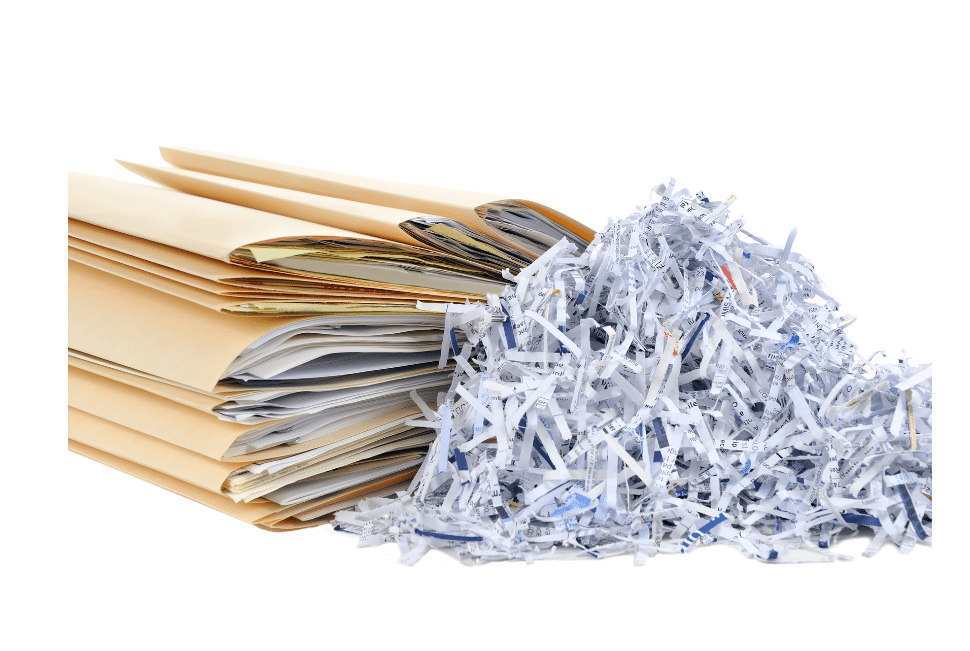Spring is traditionally a time for cleaning, decluttering, and organizing our homes. It is also a time when many of us are compiling the necessary documents to file our tax returns. This makes spring a great time to update and organize your financial records and other important documents.
Organizing your financial records makes your life easier and, perhaps more importantly, it makes things easier for those you love should something happen to you. Below are some thoughts and suggestions regarding what documents you should save, where you should save these documents, and when you should update and dispose of these documents.
What documents should you save?
Below is a list of documents that should be saved which includes permanent records that provide proof of identity and relationship, property and business records that provide proof of ownership and rights, and planning documents required to execute your plan upon death or incapacity. There may be additional documents that should be saved depending on your individual situation.
In addition to the documents listed below you should also keep any documents related to a legal claim, billing dispute, or similar matter until it is resolved. This list focuses on documents that are more difficult to obtain. You may decide to keep your most recent annual account statements as well, but these are easily obtained so you generally do not need to keep copies once you have reviewed them.
Permanent records: You should keep original hard copies of the following permanent records indefinitely.
- Passport, driver’s license, or other ID card
- Social Security card
- Certificate of citizenship or other immigration documents
- Birth/adoption certificates (and any custody or support agreements while in effect)
- Marriage/divorce certificates (and any marital or separation agreements while in effect)
Property records: You should keep the following ownership and insurance records for as long as you own the underlying assets.
- Real property deeds with any title insurance policies and loan documents (until paid off)
- Vehicle titles with any loan documents (until paid off)
- Property and casualty insurance policies (updated annually)
- Promissory notes or negotiable instruments held by you
Business records: You should keep the following business records for as long as you have an ownership interest in a closely held business or a personal right or obligation under a business agreement.
- Partnership/operating agreements showing ownership percentages
- Stock certificates or evidence of uncertificated shares with any related shareholder agreements
- Rental agreements
- Employment agreements
Planning documents: You should keep and update the following planning and tax related documents.
- Personal balance sheet including digital assets/accounts
- Wills, trust agreements, powers of attorney, and medical directives
- Life insurance and annuity policies
- Retirement and pension plan records
- Income tax returns and supporting documents
Where should you save these documents?
The documents listed above should be accessible but also protected from theft and damage. Permanent records providing proof of identity and certain planning documents including your power of attorney and medical directive should be kept where they are accessible. These documents should be stored somewhere secure, such as a filing cabinet or home safe (preferably one that is fireproof and waterproof but small enough to take with you in an emergency).
Property records and business records generally do not need to be immediately accessible so another option for these documents is a safe deposit box. Your original will, power of attorney, and medical directive should not be kept in a safe deposit box because if something happens to you the documents may be temporarily inaccessible. If you decide to have a safe deposit box, then consider having another person on the lease so they can access the box if something happens to you.
Maintaining an electronic copy of important documents can also be a good idea. However, you should be careful how these documents are stored. Whether you decide to store these documents on your computer, an external drive, or cloud-based storage, it is important that the information be stored securely with password protection to prevent fraud or identity theft. Keeping these documents in your email or an unsecured folder is not a good idea.
An important consideration in storing your documents is making sure the appropriate people can access them. The individuals named in your planning documents should know where the documents are located and be able to access them when needed. It is also important that someone be able to access your digital assets and online accounts if something happens to you. However, it can be difficult to maintain an up-to-date list of passwords and more importantly it is not a good idea from a security standpoint. Password managers (such as LastPass) are the best way to store passwords securely, but you will need to make sure someone you trust can access the master password.
When should you update and dispose of documents?
An important consideration in storing your documents is making sure the appropriate people can access them. The individuals named in your planning documents should know where the documents are located and be able to access them when needed. It is also important that someone be able to access your digital assets and online accounts if something happens to you. However, it can be difficult to maintain an up-to-date list of passwords and more importantly it is not a good idea from a security standpoint. Password managers (such as LastPass) are the best way to store passwords securely, but you will need to make sure someone you trust can access the master password.
A personal balance sheet is the first planning document listed because it in many ways drives planning. This can help to identify planning opportunities, but more importantly it makes things much easier for your loved ones upon your death or incapacity. You should update and replace your balance sheet at least annually along with an updated list of important digital assets and accounts that your fiduciaries and beneficiaries should be aware of.
Your other estate planning documents should be updated and replaced as necessary based on your changing objectives and financial situation. You should save your estate planning documents until you sign updated documents that replace the existing ones. Once you have new documents in place it is a good idea to dispose of the old documents to avoid confusion.
Income tax returns and supporting documents need to be kept for a minimum of three years, and baring your filing a fraudulent return, you’re not filing a return, or the IRS losing your return, the maximum time you need to save tax returns is seven years. However, the IRS has lost tax returns in the past, so some CPAs suggest keeping tax returns indefinitely. If you have a health savings account (HSA) then it is also a good idea to save medical bill receipts which can be used to withdraw HSA funds tax free.
When disposing of documents that have been updated or are no longer in effect you should be sure to shred documents with personal information, especially if the documents contain your social security number, account numbers, or password information.
If you have any questions or would like to discuss further, please reach out to your client service team or call 404.264.1400.
Important Disclosures
This article may not be copied, reproduced, or distributed without Homrich Berg’s prior written consent.
All information is as of date above unless otherwise disclosed. The information is provided for informational purposes only and should not be considered a recommendation to purchase or sell any financial instrument, product or service sponsored by Homrich Berg or its affiliates or agents. The information does not represent legal, tax, accounting, or investment advice; recipients should consult their respective advisors regarding such matters. This material may not be suitable for all investors. Neither Homrich Berg, nor any affiliates, make any representation or warranty as to the accuracy or merit of this analysis for individual use. Information contained herein has been obtained from sources believed to be reliable but are not guaranteed. Investors are advised to consult with their investment professional about their specific financial needs and goals before making any investment decision.
©2023 Homrich Berg


